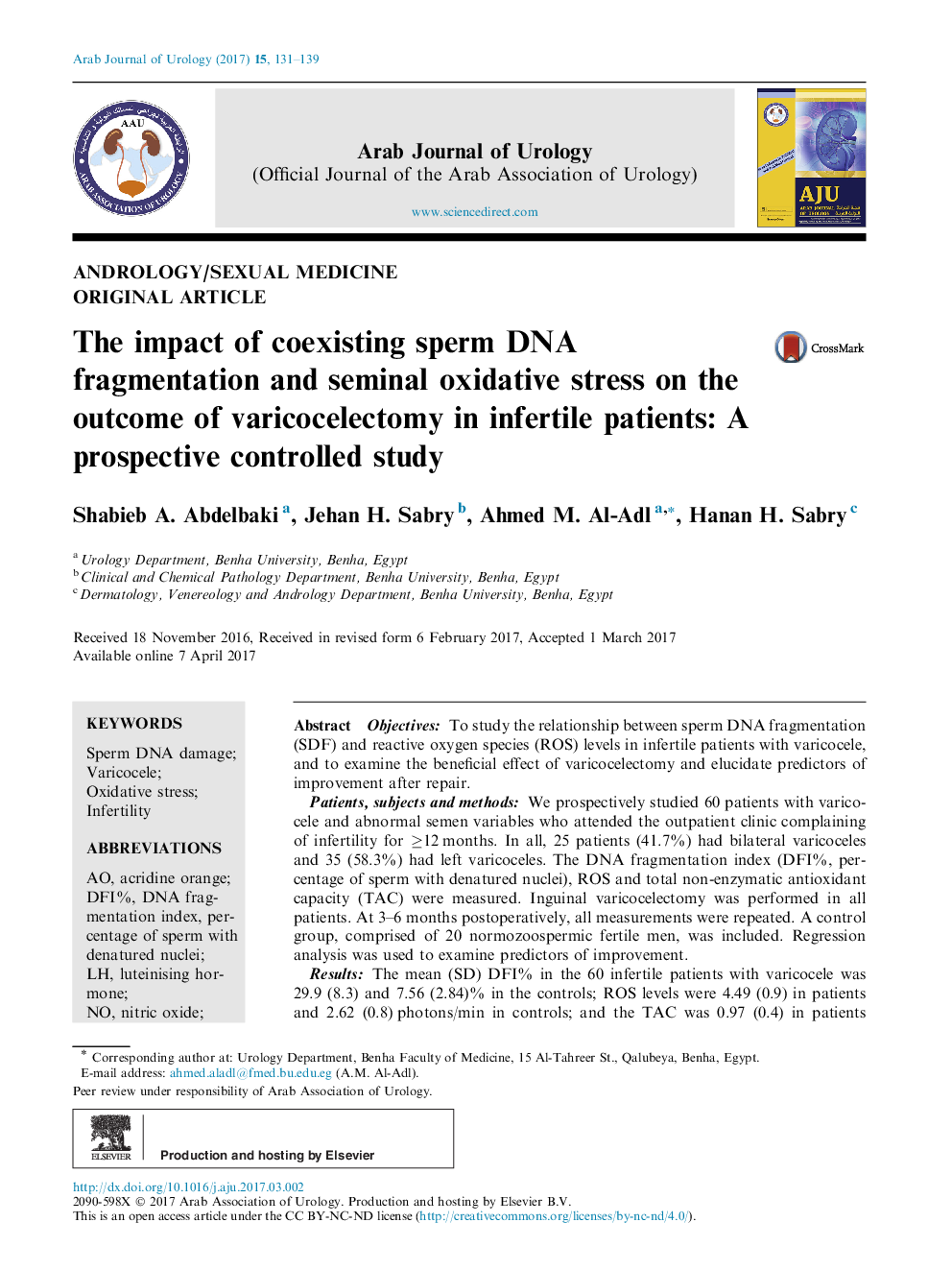| Article ID | Journal | Published Year | Pages | File Type |
|---|---|---|---|---|
| 5729604 | Arab Journal of Urology | 2017 | 9 Pages |
ObjectivesTo study the relationship between sperm DNA fragmentation (SDF) and reactive oxygen species (ROS) levels in infertile patients with varicocele, and to examine the beneficial effect of varicocelectomy and elucidate predictors of improvement after repair.Patients, subjects and methodsWe prospectively studied 60 patients with varicocele and abnormal semen variables who attended the outpatient clinic complaining of infertility for â¥12 months. In all, 25 patients (41.7%) had bilateral varicoceles and 35 (58.3%) had left varicoceles. The DNA fragmentation index (DFI%, percentage of sperm with denatured nuclei), ROS and total non-enzymatic antioxidant capacity (TAC) were measured. Inguinal varicocelectomy was performed in all patients. At 3-6 months postoperatively, all measurements were repeated. A control group, comprised of 20 normozoospermic fertile men, was included. Regression analysis was used to examine predictors of improvement.ResultsThe mean (SD) DFI% in the 60 infertile patients with varicocele was 29.9 (8.3) and 7.56 (2.84)% in the controls; ROS levels were 4.49 (0.9) in patients and 2.62 (0.8) photons/min in controls; and the TAC was 0.97 (0.4) in patients and 1.5 (0.5) mM in controls; with highly significant differences between the patients and controls. The DFI% showed a positive correlation with ROS levels, whilst the total motile sperm count (TMSC) had a significant negative correlation with DFI%, ROS levels and grade of varicocele, whilst there was significant positive correlation with TAC. The grade of varicocele and duration of infertility were related to the presence of higher levels of ROS and increased of DFI%. Postoperatively, improvement (measured as a >50% increase in TMSC) occurred in 40 of 55 (73%) patients available at follow-up, with a significant reduction in the mean (SD) DFI% from 29.49 (8.58) to 18.78 (7.23)%, ROS levels from 4.49 (0.88) to 3.27 (1.3) photons/min (both P < 0.001), and a significant increase in the mean (SD) TAC from 1.01 (0.44) to 2.05 (0.51) mM (P < 0.001). Responders had a shorter infertility duration and lower preoperative DFI% and ROS levels. Regression analysis showed that DFI% is a predictor of improvement after varicocelectomy.ConclusionSDF was shown to have a negative impact on improvement after varicocelectomy. Hence, DFI% could be recommended as a prognostic test in infertile patients with varicocele to help decision-making as regards the necessity and the anticipated outcome of varicocelectomy in patients with infertility.
